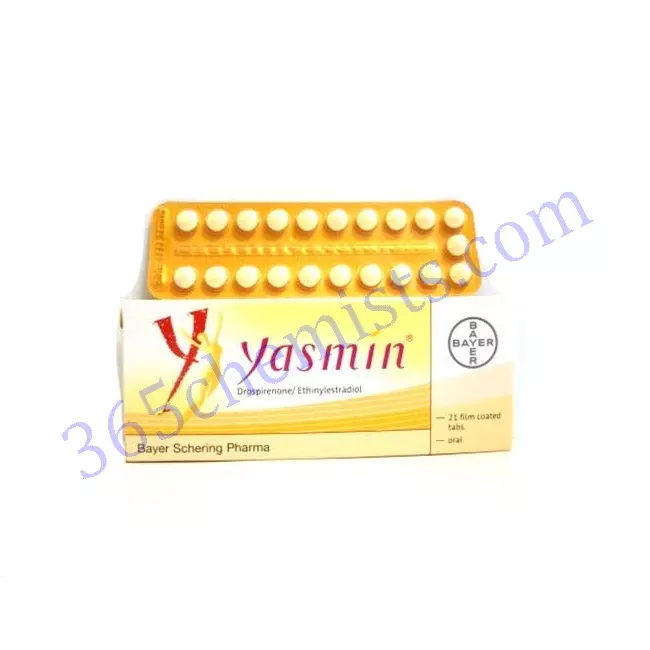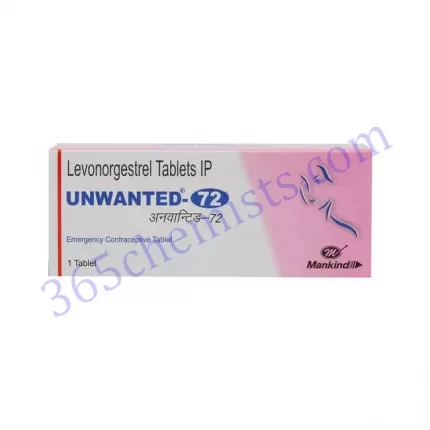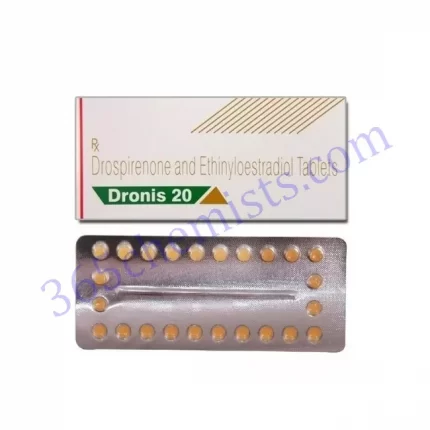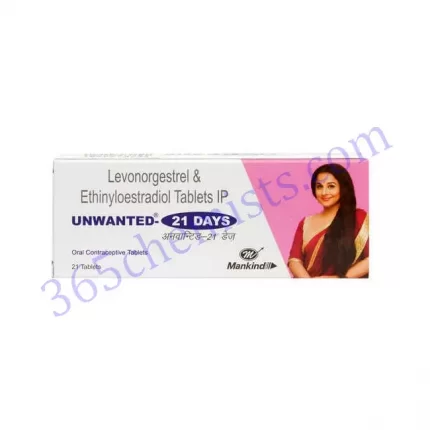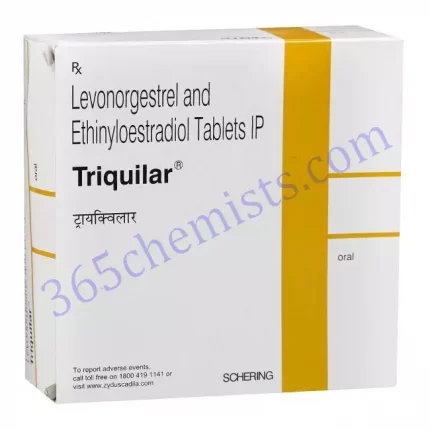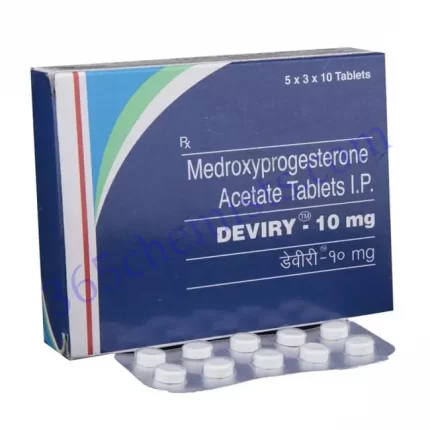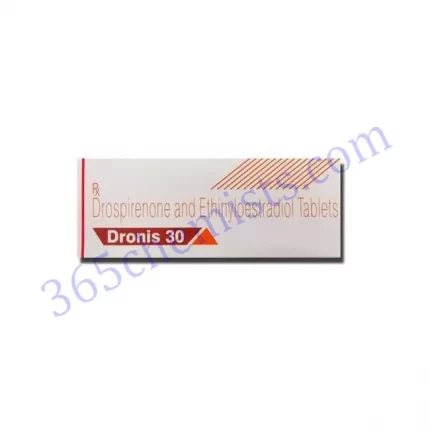Introduction
Yasmin Tablet is a combination oral contraceptive that offers extra advantages for managing hormone-related problems in addition to offering effective birth control. It has two active components, ethinyl estradiol and drospirenone, which operate together to inhibit ovulation, thicken cervical mucus, and modify the lining of the uterus in order to prevent conception.
How Yasmin Tablet Works
Inhibiting the release of eggs from the ovaries, which stops fertilisation, is how Yasmin Tablets function. Additionally, it alters the cervical mucus’ consistency, which makes it harder for sperm to pass through the uterus. Additionally, it changes the uterine lining, which lessens the possibility of a fertilised egg implanting. When used as prescribed, these effects make Yasmin Tablet a highly effective contraceptive technique.
Benefits of Yasmin Tablet
In addition to offering trustworthy contraception, Yasmin Tablet has various advantages for women’s health. It can aid in menstrual cycle regulation, easing symptoms including painful periods, heavy bleeding, and irregular periods. While taking Yasmin Tablet, some women may experience lighter and more regular periods. Yasmin Tablet is also proven to reduce acne in people who are prone to hormonal breakouts.
Drug Interactions
Describe all of the medications you are currently taking to your healthcare physician, including prescription, over-the-counter, and herbal supplements, in paragraph 8. Yasmin Tablet may interact with other drugs and lose some of its effectiveness, including some HIV meds, antifungal medications, antiepileptic drugs, and specific antibiotics. Potential drug interactions will be evaluated, and your doctor will modify your treatment plan as appropriate.
Possible Side Effects
Although Yasmin Tablet is mostly well accepted, some people may experience some negative effects from it. Nausea, breast discomfort, headaches, and modifications in menstrual bleeding patterns are typical side effects. After a few months of use, these side effects usually subside on their own and are minor and temporary. However, it’s crucial to speak with your doctor for additional assessment if any side effects linger or start to annoy you.
Blood clots, which can result in deep vein thrombosis (DVT), pulmonary embolism (PE), stroke, or heart attack, are serious but uncommon side effects of Tablet. People who have certain risk factors, such as smoking, obesity, advanced age, and a history of blood clotting issues, are more likely to experience these dangers. The warning signs and symptoms of blood clots, such as leg discomfort, swelling, chest pain, shortness of breath, or an unexpectedly intense headache, must be recognised and treated right away if they appear.
Important Considerations
It’s crucial to review your medical history and any existing issues with your healthcare professional because Yasmin Tablet is not appropriate for everyone. If you have a history of liver illness, high blood pressure, diabetes, gallbladder disease, depression, or migraines, let your doctor know as these conditions could impact how Yasmin Tablet works. You should also let your doctor know if you are presently taking any other medications because some medicines may interact with Yasmin Tablet.
Yasmin Tablet shouldn’t be used when pregnant (paragraph 14). Stop using Tablet and speak with your doctor if you become pregnant while taking it. Furthermore, it is significant to remember that Yasmin Tablet offers no STI protection. It is advised to use barrier techniques, such as condoms, in combination to Yasmin Tablet if you are at risk of STIs for the best defence.
Safety and Precautions
It’s crucial to go over your medical history and any current conditions with your healthcare professional before taking Yasmin Tablet. Tell them if you have any blood clotting issues, high blood pressure, allergies, liver disease, kidney illness, or any other relevant medical concerns. Yasmin Tablet usage may need to be modified or used with caution under certain circumstances.
Yasmin Tablet is not right for everyone, and it might not be the best method of contraception for people with specific medical conditions. Your healthcare practitioner will assess your unique circumstances and medical background to decide whether Yasmin Tablet is appropriate for you.
It’s critical to be knowledgeable about any potential adverse effects of Yasmin Tablet, according to paragraph 24. Nausea, breast soreness, headaches, bleeding through the skin, and mood swings are some of typical adverse effects. These adverse effects, meanwhile, are often not severe and frequently go away by themselves. Contact your healthcare practitioner if any adverse effects are severe or persistent.
among particular among people who smoke, are obese, or have a history of blood clots, Yasmin Tablet may raise the risk of blood clots. If you have any blood clot risk factors, let your doctor know so they can make alternate contraceptive recommendations.
Smoking raises the chance of significant cardiovascular adverse effects like heart attack and stroke when taking Yasmin Tablet. Avoiding smoking is strongly encouraged, especially if you are over 35.
Consultation and Follow-up
When using Yasmin Tablet, it’s crucial to have routine checkups with your doctor. These appointments enable continued health monitoring and drug effectiveness and safety assessment.
Consult your doctor if you want to stop using Tablet or change to another form of birth control, according to paragraph 30. They can offer advice on how to smoothly switch to a different method and guarantee ongoing protection against pregnancy.
Frequently Asked Questions (FAQs)
How should I take a Yasmin tablet, question 16?
A: Yasmin Tablet should ideally be taken once daily, with or without food, and preferably at the same time each day. For precise dose instructions, follow your healthcare provider’s instructions or look in the package insert. To maintain the effectiveness of Yasmin Tablet, it’s critical to take it regularly and avoid missing any doses.
A: Yes, Yasmin Tablets can be used as an urgent contraception.
A: No, Tablet is not meant to be used as a contraceptive in an emergency. It is a typical birth control pill that must be taken every day to avoid becoming pregnant. If you require emergency contraception, speak with your doctor to go over the best options.
A: How long does it take for Yasmin Tablet to start working?
A Yasmin Tablet may need to be used continuously for up to 7 days in order to be effective as contraceptive. To guarantee the best pregnancy prevention during the first seven days after taking Yasmin Tablet, it is advised to use an additional barrier technique, such as condoms.
Q: What should I do if I forget to take a Yasmin Tablet?
A: If you forget to take your Yasmin Tablet, do it right away, even if that means taking two pills in one day. Take the remaining tablets at their regular time after that. The package insert or your healthcare practitioner can offer advice if you miss more than one dose or are unclear what to do.
Do foods or medications interact negatively with Yasmin Tablet?
A number of drugs and herbal remedies may interact with Yasmin Tablet, lowering its efficacy or raising the possibility of negative side effects. In order to prevent any interactions, it is crucial to let your healthcare provider know about all the drugs, dietary supplements, and herbal items you are currently using. In addition, avoiding grapefruit and grapefruit juice will help keep your medication levels under control.
Conclusion
Yasmin Tablet is a combination oral contraceptive that gives extra advantages for managing hormone-related problems in addition to effective pregnancy control. People can choose to use Tablet as their method of contraception with confidence if they take into account the safety concerns, pertinent information, and requirement for routine consultations. Always seek out individualised counsel and direction from your healthcare practitioner to address your unique needs and circumstances.

